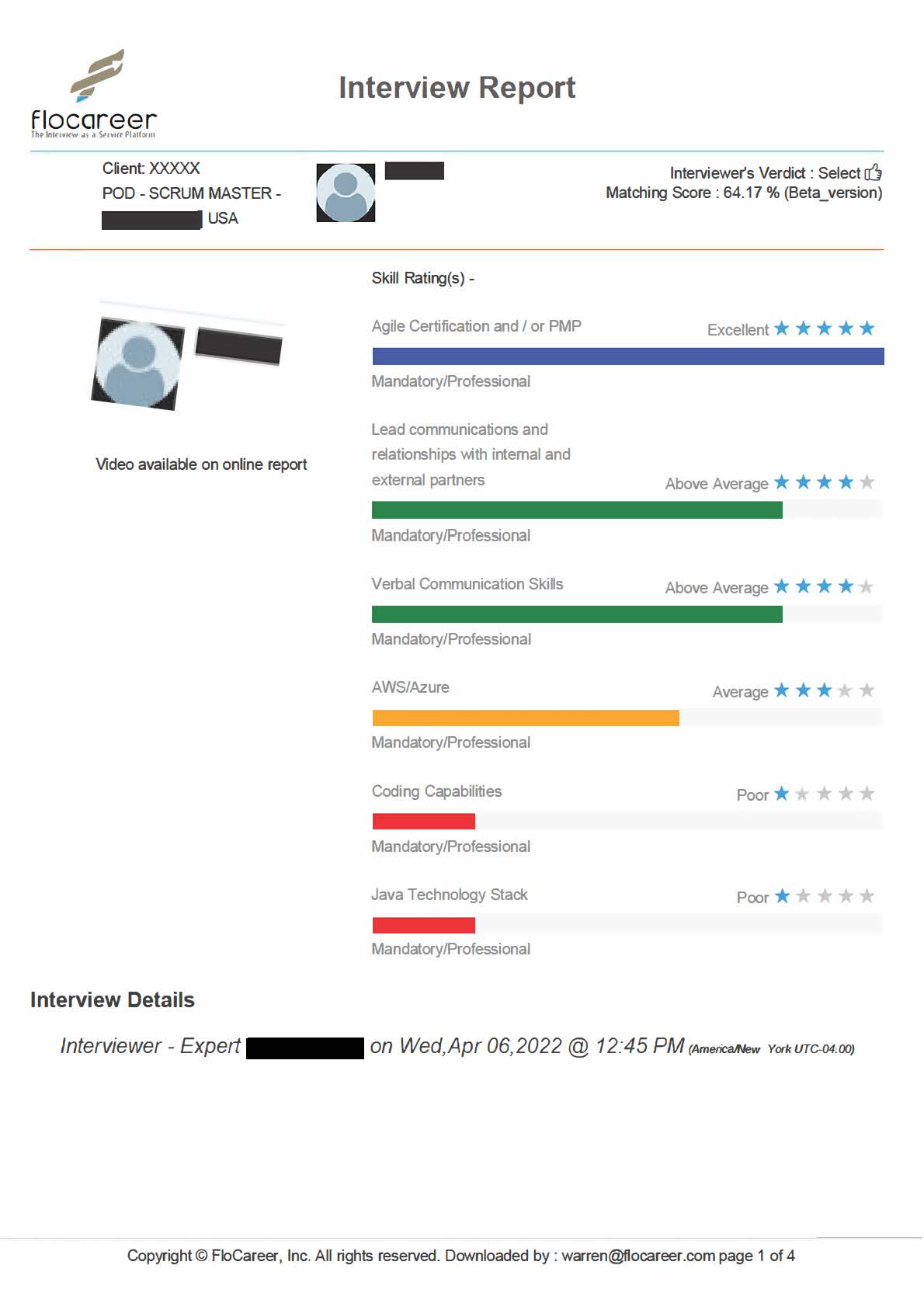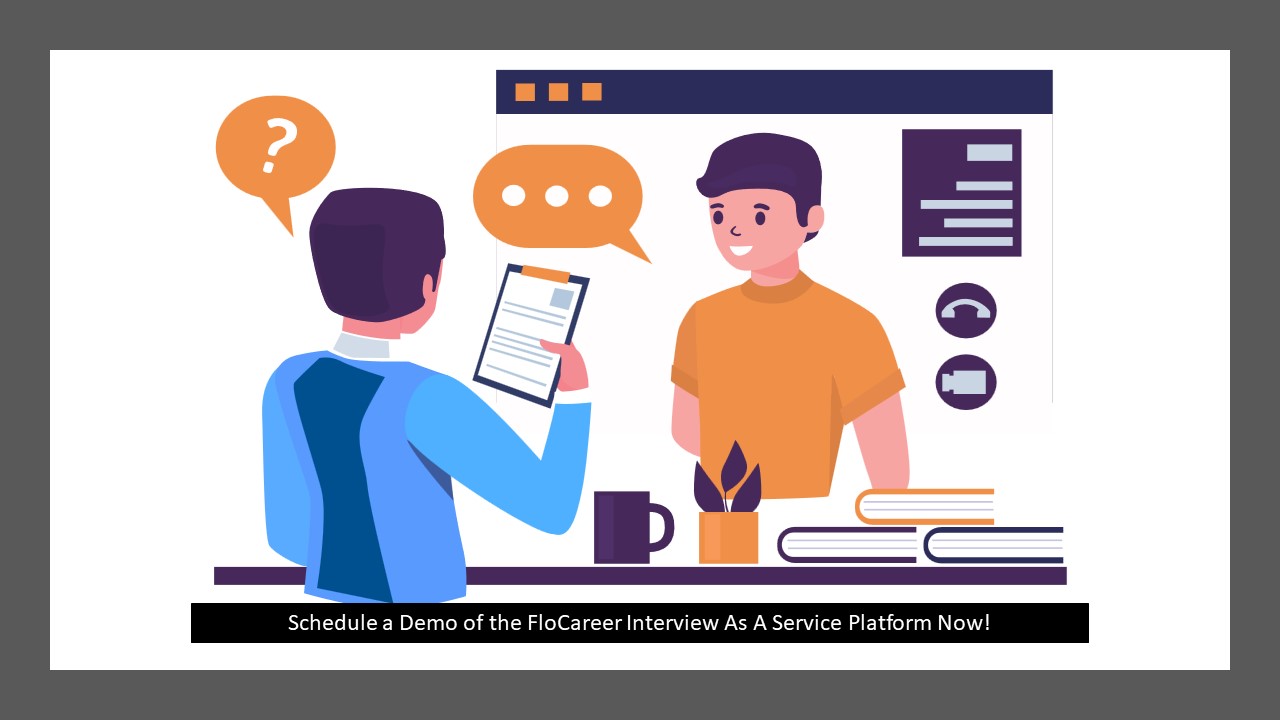At FloCareer, Interview Structure is a critical component of our rigorous approach to hiring. It enables us to focus on skills in an unbiased manner that empowers our entire team of 4000 global interviewers to conduct consistent, fair and challenging interviews that help you to hire faster, better and at scale. But what exactly are we talking about? Although we've written about Structured Interviews before, we thought it would be useful to revisit the topic.
A structured interview is a standardized method of interviewing where the interviewer asks a predetermined set of questions to each candidate in the same order and manner. Some of the benefits of using a structured interview include:
- Increased reliability: Structured interviews have a higher level of reliability compared to unstructured interviews because all candidates are asked the same set of comparable questions, allowing for more consistent and objective evaluations.
- Reduced bias: Structured interviews are designed to reduce the impact of unconscious biases and personal opinions on the selection process. This is because all candidates are evaluated on the same criteria, and the interviewer's personal biases are less likely to influence the process.
- Improved accuracy: Structured interviews provide a more accurate assessment of the candidate's skills, qualifications, and suitability for the role because they focus on specific job-related skills and competencies.
- Better candidate experience: Structured interviews provide a more positive and fair experience for candidates because they are evaluated on the same criteria as other applicants, and the process is transparent and consistent.
- Legal compliance: Structured interviews are less likely to result in discrimination and legal issues because they are designed to be fair, consistent, and objective.
To create a structured interview, you should follow these steps:
- Define the job requirements: Identify the skills, experience, and qualifications required for the job. This will help you create job-related questions that assess the candidate's suitability for the role.
- Develop a set of questions: Create a list of questions that evaluate the candidate's skills and experience, as well as their ability to handle job-related scenarios. Use a combination of open-ended and closed-ended questions.
- Use a scoring system: Develop a scoring system to evaluate the candidate's responses to each question. This will help you objectively compare candidates and determine who is the best fit for the role.
- Train interviewers: Train interviewers on how to conduct a structured interview, including how to ask questions and rate responses. This will help ensure consistency across interviews.
- Pilot test the interview: Pilot test the interview with a small group of candidates to ensure that the questions are clear, relevant, and effective.
- Revise the interview: Based on the pilot test results, revise the interview questions and scoring system as needed.
- Conduct the structured interview: Conduct the interview using the predetermined set of questions and scoring system.
By following this approach, you can create a structured interview that helps you evaluate candidates in a consistent, objective, and skills-based manner. This is why it is an integral part of our interview process at FloCareer. We would be happy to utilize this approach for your hiring.





